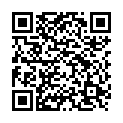|
|
|
| Module code: ABBW64. |
|
2V (2 hours per week) |
|
5 |
| Semester: 1 |
| Mandatory course: yes |
Language of instruction:
German |
Assessment:
Online exams (minimum of 75% to pass)
[updated 30.10.2024]
|
30 class hours (= 22.5 clock hours) over a 15-week period.
The total student study time is 150 hours (equivalent to 5 ECTS credits).
There are therefore 127.5 hours available for class preparation and follow-up work and exam preparation.
|
Recommended prerequisites (modules):
None.
|
Recommended as prerequisite for:
ABBW611. ATPL Test Preparation
ABBW69.
ABBW81.
ABBW82.
[updated 11.08.2011]
|
Module coordinator:
Studienleitung |
Lecturer:
Dipl.-Ing. Rolf Weymar
[updated 11.08.2011]
|
Learning outcomes:
Submodule: Flight Physiology I
After successfully completing this submodule, students will be familiar with the human limitations in aviation. They will be able to recognize and correctly analyse certain hazardous situations and make the right decision for the safety of all.
Submodule: Communication I
After successfully completing this submodule, students will be able to guarantee safe air traffic by learning correct communication procedures.
[updated 30.10.2024]
|
Module content:
Submodule: Flight Physiology I
- Human performance in aviation
- Respiration and blood circulation
- Vision
- Sensations
- Motion sickness
- Health
- Toxic substances, carbon monoxide
- Foundations of aviation psychology
- Aeronautical decision-making processes
- Stress and stress management
- Social factors in aviation safety
Submodule: Communication I
• German aviation regulation
• Units of measurement and registration marks
• Radio communication procedures
• R/T procedures in Germany
• Phraseology
[updated 30.10.2024]
|
Teaching methods/Media:
Laptops, presentations, text books
[updated 30.10.2024]
|
Recommended or required reading:
Training documents from the flight school
[updated 30.10.2024]
|

